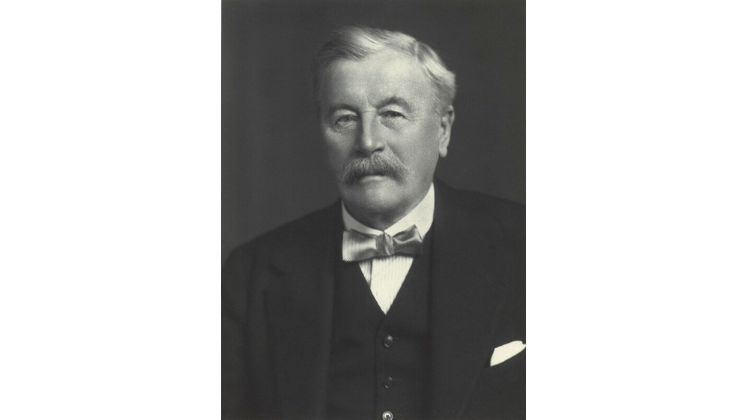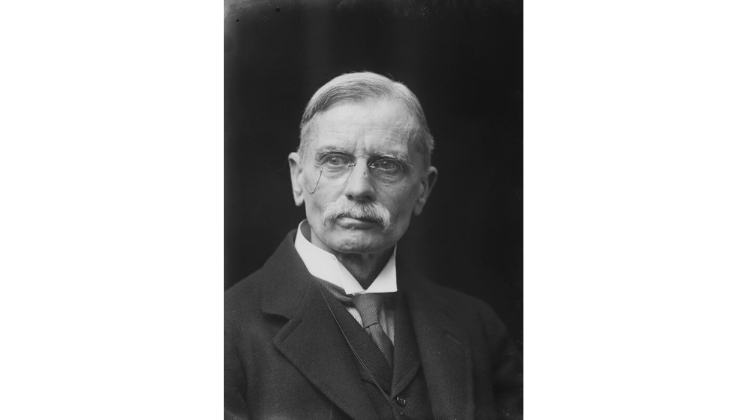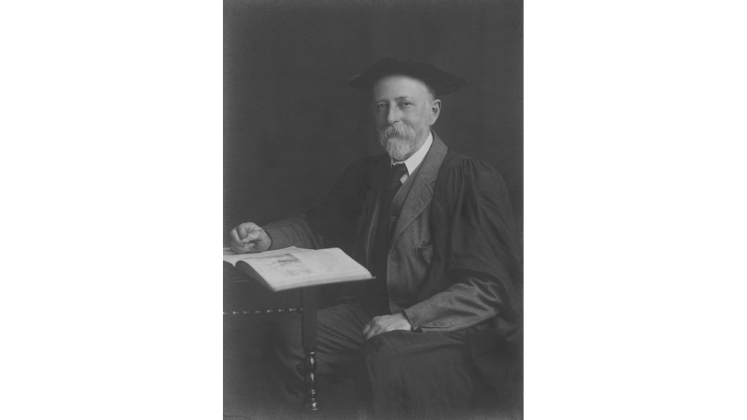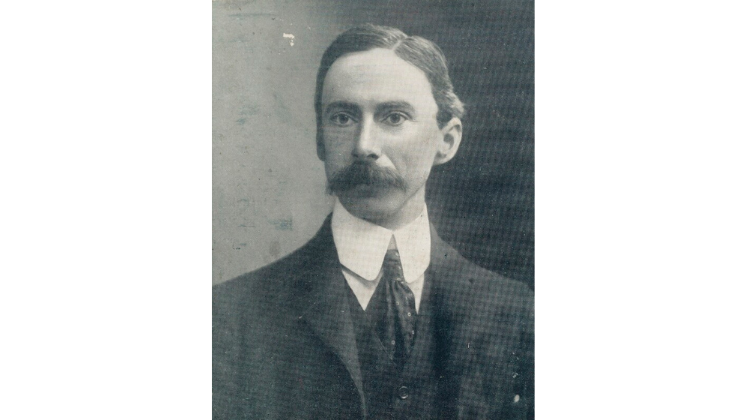Despite lacking any formal status when the School opened its doors in October 1895, it hosted an impressive array of teachers. Meet some of LSE's earliest teachers.
William Cunningham
Cunningham (1848-1919) was educated at Gonville and Caius and Trinity College, Cambridge and was ordained in 1873. Between 1874 and 1878 he was appointed as an extension lecturer in Leeds, Bradford and Liverpool. In 1878 he became an examiner for the Cambridge history tripos at Cambridge teaching economic history. From 1891 to 1897 he was Tooke Professor of Economics and Statistics at King’s College, London. He taught economic history at LSE.
Cunningham was a supporter of women’s education at Cambridge – where women did not receive degrees until 1948. One of his research assistants was Lilian Tomn (later Knowles) who was LSE’s first woman professor in economic history.
Arthur Bowley
When he joined LSE Arthur Bowley (1893-1957) was a mathematics teacher at a school in Leatherhead. He was appointed to the post at LSE after winning the Royal Statistical Society’s Guy Silver Medal. Bowley would use his Wednesday half holiday to cycle to and from Leatherhead to deliver his lectures. He was appointed Professor of Statistics in 1915. Bowley was a pioneer in developing sampling techniques and their use in the social sciences. He was knighted in 1950.
William Acworth

Sir William Acworth, 1925 by Walter Stoneman (©NPG)
William Acworth (1850-1925) studied at Christ Church, Oxford and then worked for the Metropolitan Asylums Board and served on London County Council. His investigations into the railway industry began in the 1880s and he developed an interest in the economics and statistical evaluation of railways across the world.
Acworth began his courses at LSE in railway economics in 1895 and pioneered a training course for railway administrators. He served on many railway committees both at home and abroad and was knighted in 1921.
Joseph Edwin Crawford Munro
Joseph Munro’s connection with the School was short lived due to his early death in 1896. Munro (1849-1896) came to LSE after a career at Owens College in Manchester which in 1880 became part of the federal Victoria University, later including colleges in Liverpool and Leeds. Munro lectured and wrote on both economics and law and had been the unsuccessful Liberal candidate in two elections for Manchester East. In the School’s first year he lectured on commercial and industrial law.
Herbert Somerton Foxwell

Herbert Foxwell, 1917 by Walter Stoneman (©NPG)
Foxwell (1849-1936) studied at both London and Cambridge Universities maintaining close affiliations with St John’s College, Cambridge, University College London and LSE. He had wide interests in political economy but was an expert in the areas of banking and currency. He was a lecturer at LSE from 1895-1922.
Major George Peel
George Peel (1869-1956) was the son of the first Viscount Peel and grandson of the Prime Minister Sir Robert Peel. He studied at New College, Oxford and was a prolific author in the fields of politics and economics. From 1917 to 1918 he was briefly MP for Spalding in Lincolnshire until the constituency was abolished in 1918. In the School’s first year Peel lectured on banking and from 1920 to 1945 he served as a governor.
Edwin Cannan

Edwin Cannan, Professor of Political Economy, c1920
It is likely that Edwin Cannan (1861-1935) came to the attention of Sidney Webb in 1889 when he presented a paper to the Fabian Society on economics and socialism. In 1895 he was persuaded to join LSE, beginning his teaching with a course on local government taxation. When LSE joined the University of London in 1900 Cannan became Dean of the Faculty of Economics and Professor of Political Economy in 1907. He retired in 1929.
His most visible legacy to the School is his suggestion of Rerum Cognoscere Causas from Virgil’s Georgics as the School motto in 1921
Edgar Josiah Harper
Edgar Harper (1860-1934) was a land valuer and civil servant who began his working life in the architect’s department at the Metropolitan Board of Works, becoming an assistant valuer in the estate and valuation department. In 1891 he moved to the new London County Council working on rating and valuation. His work for the LCC brought him to the attention of Sidney Webb who invited him to lecture on The Rating Question,
In 1901 Harper became the statistical officer for LCC producing a new comprehensive series of London Statistics. Harper was closely associated with the Prime Minister Lloyd George’s attempts to impose a national tax on land values, a proposal which ultimately failed. Harper ended his career as chief valuer in the Inland Revenue valuation department, and was also a fellow of the Surveyor’s Institution and of the Royal Statistical Society.
Hubert Hall
Hubert Hall (1857-1944) joined the Civil Service in 1879, entering the Public Record Office as a junior clerk and was promoted to senior clerk in 1892. Although he worked with modern departmental records his personal interest was in medieval history and he published several volumes for the Pipe Roll Society and was the literary director of the Royal Historical Society. He was secretary of the Royal Commission on Public Records from 1910 to 1918.
His collaboration with Beatrice and Sidney Webb on English Local Government led to him teaching palaeography, diplomatic and economic history at the School from 1896 to 1919 alongside his archival role at the Public Record Office. His role as an expert mentor to research students was crucial in encouraging the development of history, and particularly economic history, research at the School.
Bertrand Russell, third Earl Russell

In 1895 the philosopher and mathematician Bertrand Russell (1872-1970) took up a five year fellowship at Trinity College, Cambridge, to study mathematics and philosophy. However, on his honeymoon the previous year he had travelled to Berlin to investigate the development of the German Social Democratic Party, at that time the most influential Marxist group in Europe. On Russell’s return to Britain he was invited by the School to give a series of lectures on the German Social Democratic Party.
When the School joined the University of London Russell became a Governor retaining the position until 1906. Throughout his life Russell was a prolific writer on political and philosophical subjects and an active campaigner. He opposed conscription during the First World War and in 1958 was one of the founders of the Campaign for Nuclear Disarmament. Russell became third Earl Russell in 1937.
Contributed by Sue Donnelly (LSE Archivist)